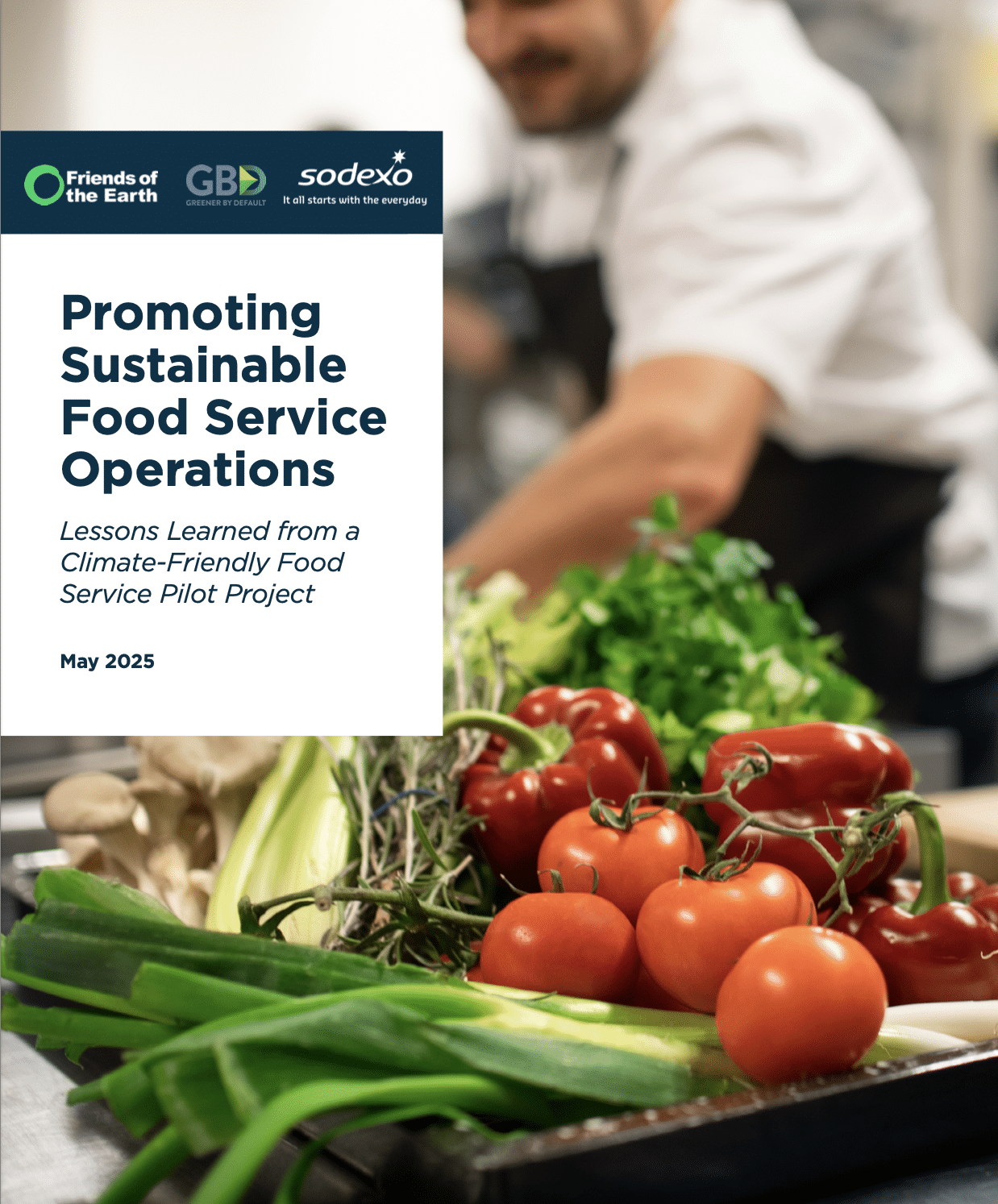- Home
- Food & Agriculture
- Climate-Friendly Food in Government Purchasing
- Promoting Sustainable Food Service Operations
Promoting Sustainable Food Service Operations
Read the executive summary here
Read the full report here
Scientists overwhelmingly agree that shifting global eating habits towards predominantly plant-based diets is one of the most powerful tools we have to combat the climate crisis and improve human health. In response, dozens of private companies, universities, and governments have implemented innovative, no-cost or low-cost climate-friendly food procurement and food service strategies. Successful strategies include reducing food waste and expanding low-emission plant-based and plant-forward menu options while maintaining customer choice. Shifting towards plant-forward menus is not only an effective strategy to reduce emissions since plant-based proteins tend to have a lower carbon footprint than animal proteins; it also increases healthy, fiber-rich menu items and helps to meet diverse dietary needs and preferences of all customers.
Friends of the Earth, Greener by Default, and Sodexo partnered to design, implement, and evaluate a pilot project aimed at reducing food-related emissions at a client cafeteria that serves an average of 2,500 meals per day. During the eight-week pilot project, with technical support provided by Greener by Default and Friends of the Earth, Sodexo expanded plant-forward menu offerings and utilized behavioral design strategies to make the food service operation’s menus and cafeteria more inclusive and climate-friendly. This report describes the pilot program design, implementation strategies, and results, including carbon footprinting and revenue analyses. It also summarizes key lessons that can be employed to replicate the inaugural pilot’s success and scale strategies across facilities.
During the pilot, the Sodexo-operated cafeteria replaced one meat-based menu option with a plant-based one on the main Entree line, ensuring that for every two meat-based entrees, one plant-based entree was available to customers. New plant-based items were also added to the Deli and Grill stations. In addition to a shift in ratios of meat-based to plant-based, they utilized behavioral design (nudge-based) strategies to guide customers to choose the climate-friendly menu (e.g., placing plant-based options first in service lines and adding appealing names for those options). The pilot team assessed the impacts of the pilot strategies on the Entree, Deli, and Grill stations.
Key findings from the pilot include:
- Implementation of this simple suite of strategies reduced the estimated carbon footprint of the food service operation’s Entree, Deli, and Grill stations by 11,764 kg CO2e, equivalent to emissions from driving over 26,000 miles – more than the circumference of the earth.
- Sodexo increased the share of the pilot cafeteria’s revenue relative to the other food retail options in the dining facility, an indication that these shifts were well received by customers.
- Enthusiastic leaders and engaged frontline food service staff are key to a successful climate-friendly food service initiative.
In conclusion, the pilot team found that adding plant-based menu options coupled with behavioral design strategies is a cost-effective, achievable, and high-impact strategy for reducing greenhouse gas emissions. This result is consistent with similar previous institutional climate-friendly food service pilot projects. Scaling this strategy across food service operations is a powerful way to reduce procurement-related greenhouse gas emissions, while making the healthy choice the easy choice, and ensuring we meet the dining needs of all consumers.

